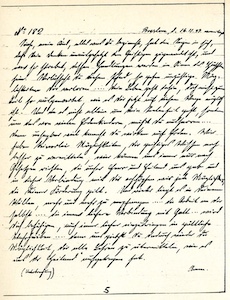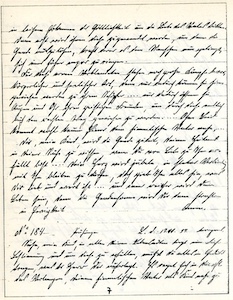It is a spiritual incapacity, a lack of spiritual knowledge and cognitive power, when a person believes himself to be in the truth, who has received his knowledge from people without ever having thought about it himself. To believe means to consider something to be true that cannot be proven. Nevertheless, everything that is asked to be believed must be seriously thought through; but if everything that is taught is blindly accepted, then this is not a living, convinced faith, but merely a planned transmission of a teaching and a thoughtless acceptance of it. And such faith truly cannot stand before God. It is not enough if objections to doctrines of faith are refuted with idioms that have been memorised, i.e. adopted, but do not substantiate a doctrine in a meaningful or convincing way. The truth must be clearly and irrefutably substantiated, it must speak for itself, as it were.... However, something cannot be truth that has been established as a doctrine of faith incoherently and without justification, and every thinking person has the duty and the right to demand clarification if a doctrine of faith is incomprehensible or appears unacceptable to him. If this clarification cannot be given to him by people in a satisfactory way, then he should ask God Himself for clarification, and only when this is given to him mentally, when he himself can affirm the doctrine of faith in his heart, can we speak of convinced faith. God does not demand blind faith.... for then the words 'I believe' would only be empty words.... yet a person can also have deep faith in something that cannot be proven to him as soon as his heart affirms it. This, however, is only the result of reflection, and reflection on every doctrine of faith is required because otherwise a person would have to believe everything that is presented to him. Now that the adversary is intent on enforcing every truth with error and God does not oppose his plan, the human being has the duty to examine the truthfulness of the teachings he receives, i.e. to think them through and only then accept what seems acceptable to him. And now it is up to him whether he asks for divine assistance. This request will give him the power of knowledge, for without God's help his power of judgement is truly too small. If his will is good and thus turned towards the truth, he will know very well whether he is being offered the pure truth or error....
Amen









